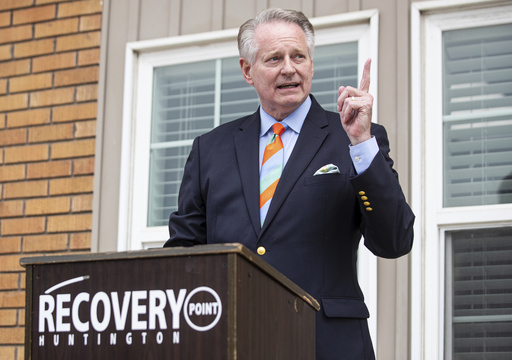
CHARLESTON, W.Va. — Voters in West Virginia may find that the upcoming gubernatorial election presents one of their few opportunities to voice their opinions on abortion rights in the wake of the Roe v. Wade decision being overturned.
State Attorney General Patrick Morrisey, representing the Republican Party, and Huntington Mayor Steve Williams, the Democratic nominee, have previously collaborated to combat substance abuse issues in the state, which grapples with the highest opioid death rates in the nation.
However, their positions on reproductive rights diverge significantly. Morrisey staunchly supports West Virginia’s abortion ban, which offers very limited exceptions, while Williams previously attempted unsuccessfully to propose a referendum concerning abortion for the upcoming ballot in November.
Williams is now optimistic that public sentiment surrounding reproductive rights is stronger than Republican leaders may anticipate, even in a state where GOP candidates have consistently prevailed in past presidential elections, including Donald Trump’s victories across all counties in 2016 and 2020.
“In my view, the concept of freedom will be at stake this election cycle,” stated Williams, who has been engaging with women from various political affiliations who are dissatisfied with current legislative restrictions on abortion.
Unlike several other states that have taken direct votes on abortion laws following the revocation of federal protections, West Virginia does not have a process for citizen-led ballot initiatives. Instead, ballot questions require legislative approval, and with Republican supermajorities in both chambers, lawmakers disregarded a petition with thousands of signatures calling for a vote on abortion rights.
Initiatives to safeguard abortion rights have gained momentum even in traditionally Republican states such as Kansas and Kentucky, where citizens have voted in favor of maintaining access. The clear difference in views between the gubernatorial candidates might resonate with certain voters in West Virginia, despite its Republican majority.
If elected, Williams has pledged to exert pressure on legislators to either allow for a ballot measure on abortion or to ease existing restrictions. Should they continue to ignore these calls, he would consider reinstating access to abortion through executive action.
In response, Morrisey emphasizes that West Virginia is a “pro-life state” and references a 2018 vote where nearly 52% of voters supported a constitutional amendment stating there is no right to abortion access in the state. However, this vote, which occurred during a midterm election with low voter turnout, took place four years prior to the U.S. Supreme Court’s affirmation that the matter of abortion regulation is a state issue.
Observers note that the 2018 amendment focused on state funding for abortion services, which could have swayed voters who are opposed to public funding but not necessarily to the complete abolition of abortion access. Shortly after that amendment, West Virginia enacted its strict abortion ban, joining a cohort of 13 states to do so.
Morrisey maintains that if voters are displeased with their lawmakers’ actions, they can vote to remove them from office. “My opponent is a part of the radical left, influenced by the Biden administration, which does not align with the views of most West Virginians,” he stated.
Conversely, Margaret Chapman Pomponio, director of the advocacy organization WV FREE, stated her firm belief that West Virginians would support abortion rights in a referendum. “I genuinely think lawmakers shy away from putting this issue to a vote because they recognize they would likely lose,” she opined.
She expressed concern that many citizens remain unaware of the stringent nature of the state’s abortion laws. Following the Supreme Court’s Dobbs decision, specialists in the legislature convened to debate further proposals for abortion bans. During one session in July 2022, public protests erupted, demonstrating widespread discontent with legislative inaction.
When the legislature was reconvened in September, a ban was swiftly approved with no opportunity for public input. Chapman Pomponio noted, “This has led to feelings of distrust and disillusionment among the populace, as many feel their voices have gone unheard. Why should they vote if their elected officials are seemingly indifferent to their opinions?”
WV FREE has actively reached out to educate voters about the current laws and their restrictive exemptions. For instance, while adult victims of rape and incest may access abortion services up to eight weeks into pregnancy, child victims have a 14-week limit, contingent on reporting the assault to the authorities within 48 hours of the incident—an aspect that can hinder many victims from seeking help.
“Politicians have misrepresented these exemptions, portraying them as more compassionate than they truly are,” she asserted.
Furthermore, campaign financial reports reveal that Democratic candidates have invested minimally in advertising for the governor’s race, while Morrisey and his Republican supporters have spent an excess of $36 million promoting his campaign.
